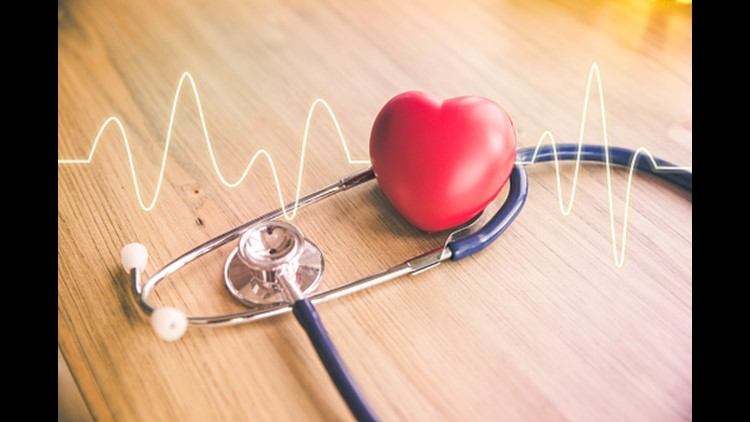ST. LOUIS — "I'm that nurse where I'm going to come into the room and say, 'Get up, here's what you're going to do,'" said Jodi Kuhn, a nurse on the cardiac floor of Barnes-Jewish Hospital in St. Louis.
But when it comes to her heart health, she's the girl who's "lucky to have caught it," she said. "I was a walking time bomb."
Two years ago, she was a healthy, athletic 38-year-old.
"I was probably in the best shape I'd been in my whole life," she said.
When she started feeling cramps and pains, she wrote it off as indigestion, exhaustion, even bad posture. It took months of questioning her symptoms and ignoring the advice of others before she finally saw a cardiologist and got the news.
"He says, 'You had a heart attack.'" And she'd need open heart surgery — soon.
"I am having bypass surgery and I am 38 years old and I am healthy and, you know, I'm fit and I do everything I'm supposed to do," remembers Kuhn, "And it's happening to me."
The surgery was a success, but Kuhn still felt like she'd failed.
"Number one, I'm a nurse. And number two, I was in really great health, so it's really hard to tell people that I'm having open heart surgery."
Now, two years later, she's diagnosed a problem that doesn't just affect her.
"One in three women die of heart disease and I can pretty much tell you why," she said. "Because we don't pay attention to our bodies. You know, we worry about everybody else around us, we take care of everybody else."
While Kuhn knows taking care of everybody else is her job, she realizes so is taking care of herself.
"Pay attention to your body, know your blood pressure, know your cholesterol," she said, a message she now shares with anyone who'll listen.
Now she works with The American Heart Association and their Go Red for Women efforts to help educate others of the importance of listening to their bodies and knowing the signs.
"It happened, it can happen to anybody," she said. "It was not fair, it was not fun, but I have to somehow take a bad thing and turn it into a good thing."
To learn how to reduce your risk of heart disease, visit barnesjewish.org/heart or call (855)-45-HEART.
Prevalence of heart disease
- February is American Heart Month. Doctors and nurses are spreading the word about lowering the risk of heart disease.
- Awareness is important. Heart disease is the leading cause of death in the U.S., taking more lives than all forms of cancer combined.
- According to the American Heart Association:
- Heart disease is the number one killer of women, causing 1 in 3 deaths each year.
- Approximately every 40 seconds, an American will have a heart attack.
- While people are at risk throughout their lifetime, doctors say risk increases at a certain age:
- Men 45 and older, Women 55 and older
Prevention
- It’s key to know your risk of heart disease. Some of the risks include:
- High blood pressure
- Diabetes and pre-diabetes
- Smoking
- Being physically inactive
- Having a family history of early heart disease
- In many cases, heart disease is preventable. There are modifiable risk factors people can do in their daily lives to reduce their risk. Knowing the signs and symptoms of heart disease, and how they differ in men and women can save your life.
More heart disease prevention tips
- Maintain a proper diet and exercise
- Manage your weight (normal body mass index is 18.5 - 24.9).
- Manage your blood pressure
- Reduce your blood sugar
- Manage stress levels at work and at home



